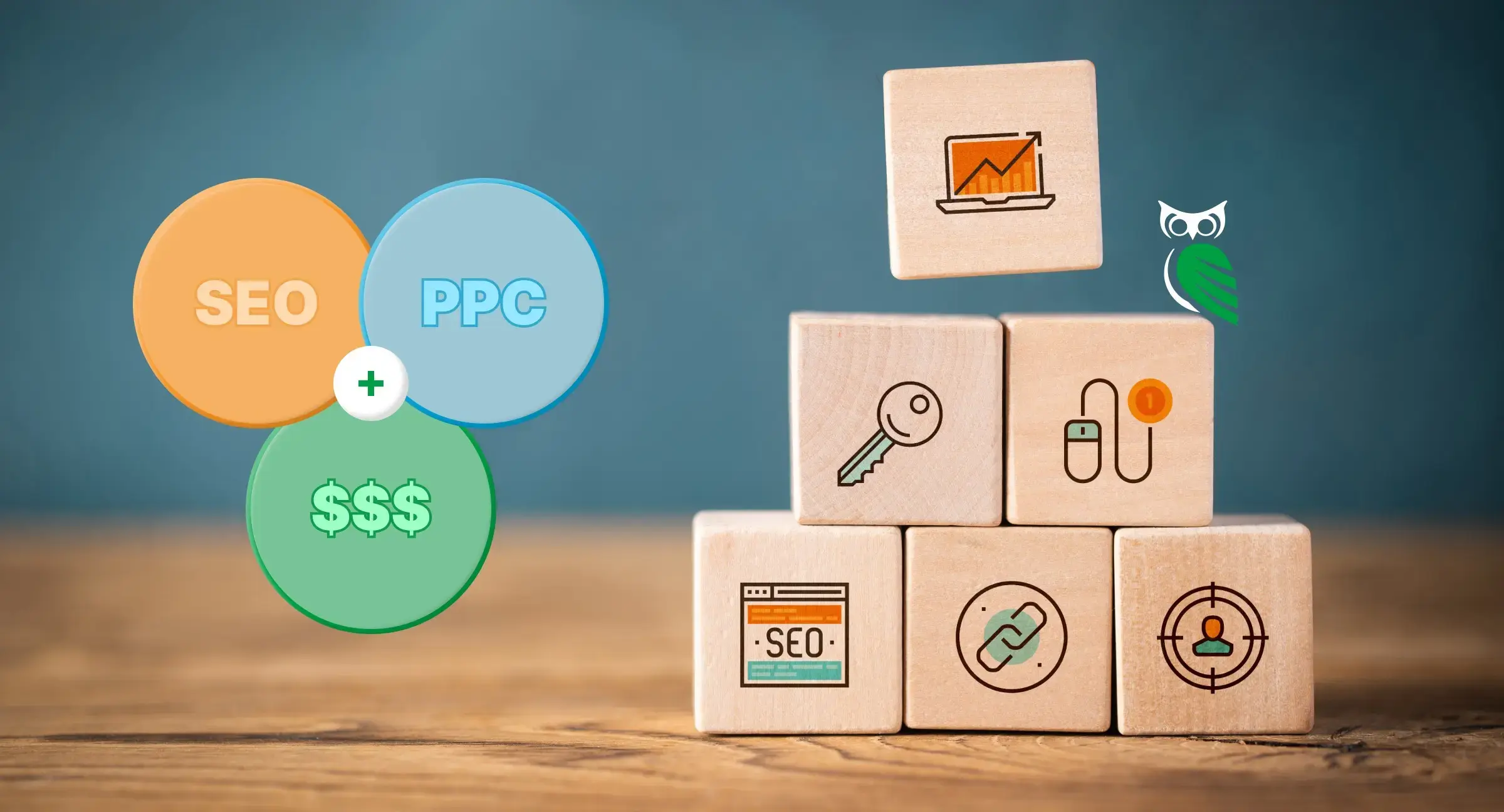It's Time to Get WISE.
Patrick Dillon
CEO
Matthew Hinkle
Director of Accounts
Apply Today
Please fill out the information below. Someone on our team will reach out in 3-5 business days to schedule a call if we see a good fit.
Book Patrick Dillon
Thanks for your interest in booking WISE CEO Patrick Dillon on your podcast! Please complete the form below, and a team member will contact you shortly.

Remove Negative Reviews.
Everything You Need to Do to Set Up a Business in 3 Steps

January 30, 2021
- 11 min read

So you’re ready to start a new business? That’s great! For most new business owners, even us seasoned ones, it’s difficult thinking about where to start. That’s why I wrote a blog to help make things a little easier for the new business owners out there.
For a little context, in late 2020 I decided to launch another business (my 10th business to date, and the 3rd company I’m currently running). A friend had asked me if I could help him start a business of his own. After being asked this well over 100 times, I know how difficult is to spend 1-on-1 time coaching a new business owner. There’s just so much to learn, and lessons that I believe we just need to live through on our own sometimes. I said that I’d do something for him instead that I could share with more people.
I pulled out a notebook and started a journal on all the steps I took to get things started. Later, I went back through this to put these steps in a more logical order for anyone to follow. After having been through this many times before, I can assure you, this is fool-proof, and you cannot skip any of these steps if you want to succeed.
I hope you get something out of this and if you have any feedback, comments or questions, please leave them in the comments section below and I’ll update the post. Happy trails and reach out when you’re ready for a WISE marketing partner to take you further!
1. Business Strategy
My intention with this post is not to dive deep into your actual business strategy, but you should be thinking about why you’re starting the business. Business is tough if you don’t have some sort of competitive edge or unique value proposition. Get a nice business journal out, and start writing out your thoughts. And remember, where you start is never where you end up. A business is like raising a child, you’re going to have obstacles, and you will change directions. Some helpful questions to ask yourself:
Why This Business?
- What types of products and services will you offer initially? What might you add later on?
- Who is/are your target audience(s) to start?
- What makes you special? What is your unique value proposition?
- Why is your business the one to go with over competitors?
Name Research
Before you get too far along, you’re going to have to come up with a name. Make sure to read through this entire blog post for helpful tips to follow in the marketing section that affect your business name choice. We’re planning to write another blog post soon on things to consider when coming up with a business name, so make sure to subscribe to our blog.
2. Operations
Getting these processes set up right the first time will save you from headaches down the road. Doing them half-assed now will only cost you more later if things work out. Trust me on that.
Legal
- You’ll want to setup your Employer Identification Number using the EIN application on the IRS website
- Make sure to investigate the different types of business entities that you can set up under, so you know what’s right for you now and later. For a business with revenue over $150k/yr, an S Corp is what I prefer for many reasons.
- Now that you have your Federal EIN, next step is to apply for a city business license (if you operate in a local market).
- Incorporation Papers
- You can use sites like LegalZoom, but if you’re serious about your business, don’t be penny wise and pound foolish—work with a real law firm. I’ve used several firms for this, and can make introductions. If you’d like an intro just reach out through our online form and I’ll connect you to a reputable firm that charges fair prices.
- Partnership/Founder Agreement if applicable.
- Hint: if you can afford roughly $2,500, a good law firm can do everything above for you, and you’ll not have to worry about any mistakes.
Banking
- Set up a bank account with a small business bank, not a big national bank – big banks suck for business owners.
- A small business bank can do so much more for you than a big bank. As an example, when the PPP process began in 2020 with COVID, my relationship with my bank at the time, First Republic Bank, allowed us to sail smoothly through the process and get funded immediately. I was funded before any of my business owner friends that were at big banks, and many of those friends never got funded at all.
- Fund your operations account. For most new businesses, a $10,000 investment is a good baseline to start operations, but you may want or need to invest substantially more depending on the type of business you are engaging in. For my businesses, I generally have a 12-month marketing plan on day one, so I always budget $30k just for the marketing piece.
- Get a checkbook and a debit card attached to this account. You’ll need this pretty quickly once you start needing services.
- Get a separate business credit card to track expenses and get benefits like cash back or reward points. Your credit card will also help protect purchases on the products and services you’ll be needing. If you can get approved for and AMEX, do that first. American Express protects you better than any other card, and they love helping business owners.
Business Essentials
- Email — Set up professional business emails for everyone involved. There’s no faster way to looking like an amateur than if you’re using a generic Gmail account (like [email protected]), or personal email. I recommend Google Suite for your business email, which starts at $6/month.
- Business Phone —When you need it, use Google Voice, starting at $5/month. I’ve also used Ooma and we’re looking at 8×8 now as we expand. Many of these services are very apples to apples, so look at price and features closely.
- Document Storage — Use Google Drive, which is free to use. No need to use anything else in most cases. Think long and hard about creating a proper folder structure for organizing things.
- Insurance — Check if you need this now, or if you can wait and add it at a later date. Most of the time you can skip this in the beginning, then get a modest general liability plan. Worker’s comp comes when you have employees.
Accounting
- Bookkeeping — Quickbooks online will be easy enough to start or try Xero, which is a little easier to use.
- Credit Card Processing — You can set this up through Quickbooks, Square, but we like Stripe. Your business type may determine what is best for you. Don’t go with a local company for this, they provide no additional value in most cases.
- Payroll — As soon as you bring on employees, get a payroll company. Trying to do this on your own is not only risky, but it’s silly for the cost involved. We started with a company called Heartland, and are now switching to Gusto for $19/month. We’ve had issues in my businesses with both Paychex and ADP, and I won’t use them again.
HR
- Documents — Employment agreements & offer letters. Spend time on these templates. Your law firm can help with employee confidentiality agreements.
- Handbook — Eventually you’ll want an employee handbook. If you use Gusto for payroll, you can rely on them to help with your employee handbook for a very reasonable fee.
- Benefits — We recommend doing this through Gusto, too. Depending on the state you operate in, you may be required to provide certain benefits nowadays.
3. Marketing
Directory Listings
Business directories are essential when you open a new business. This all happens before you launch a website, and it should be the first step in marketing. Here are some of the more important directories to set up and make sure you don’t have any other business conflicts with. Note the importance of making sure you add your business to its proper categories on these websites.
- Facebook— Setup a business page and make sure to have a nice profile photo and cover photo for branding, fill in all your profile data (1.5 hours).
- Yelp — Don’t bother with all the paid upgrades. Just set up a business page and get all the basic info, branding and call to action buttons setup (1 hour).
- Google — Set up a GMB profile, then work on filling in your profile data, products and services. You’ll need to verify this page with a postcard from Google sent to a physical address. It’s really important to make sure your business is included in the correct categories also (2 hours + 5 days to wait for verification).
- You do not need to have a Better Business Bureau (BBB) page. It’s kind of a scam and costs about $51/mo. Between our own businesses, and our clients, we never see any business referred over from the BBB website. Most people should know any business there is simply paying to be there besides.
- Later work with a digital marketing firm to set up and manage more business directories when you can afford the help.
Website
- Key Terms to know
- Domain/DNS — where you register your domain
- Platform/CMS — what platform your website is built on (WordPress, nest, wix, Squarespace, etc.)
- Hosting — where your website is hosted after it’s built
- Securing your domain name (website address).
- First, you need to find an appropriate domain. This can be really challenging because basically every word in the English language is taken, so you need to make up a word, or find an available combination of words. Try out a tool that we like for generating available domains called nameboy.
- Once you find a domain, immediately register it. There are a lot of services for this, but we like namecheap.com.
- Do you need a website right away? Some businesses don’t, and can even benefit by operating without a website for a little while. Most businesses pivot so you may want to wait until you really understand what you offer and to whom you want to offer it to.
- What kind of website do you need at first? Can you get away with just a few pages at first? Do you need to sell anything directly through it? What features will you need in phase one (billing, scheduling, etc.)?
- Search Engine Optimization — No website exists on Google without SEO. Don’t ask an amateur and hire an expert to help here when you’re ready.
Advertising
- Yelp — Don’t start with this EVER. I was one of Yelp’s first 100 agency partners years ago, and we had very little success there for our clients. Yelp advertising only works for a very small slice of business types, and even then, there are better choices to spend your marketing dollars. Plus, you need a lot of reviews on Yelp before you even think about advertising there. Read our blog post on developing a review strategy for your business.
- Google —Get a starting ad credit, but only do this with an experienced professional, and only after you have a well designed landing page, or fully built out website. Amateurs waste money on Google ads, which leads business owners to think that this advertising does not work. The reality is that Google is one of the most valuable companies in the world, and almost all their revenue comes from ads. That’s because it works for sophisticated advertising managers.
- Facebook — There’s lots to do here before you get started on this but only work with a professional. This platform is way too complicated for amateurs. Again, Facebook is great, but the professionals are the ones that make it work.
Helpful Hints
- As soon as you get Google, Yelp and Facebook setup, ask for some customer reviews. It’s never too early to ask for these.
- When you can afford it, hire a marketing firm that’s setup to help your type of business. Trying to learn this on your own is impossible, especially considering you’re going to be creating a business. Hiring freelancers is a recipe for failure. Go with professionals.
Final Thoughts
Starting a business doesn’t need to be that hard. Remember to seek out advice from other successful business owners. We love to share and help others. Make sure to listen to true domain experts, and not just anyone willing to give you advice. I think the most expensive lessons in my life have stemmed from taking advice from people I should have never asked from.
Start a business journal. From the things you agree to with clients, to promises you make to employees, being able to go back and see your notes is very important.
Keep good records. Everything from receipts and purchases, to agreements and legal files. You’re going to need it all at some point, and being able to find it quickly is essential.
If you have marketing and business questions reach out or leave a comment below and we’ll answer quickly? If you want to talk to a marketing firm to help you develop a plan for growth, reach out and schedule a consultation with us.
Good luck and stay WISE.
Share
Subscribe to WISE Insights
Stay ahead of the digital marketing curve and never miss a lucrative trend or insightful tidbit – subscribe to our WISE blog!
Keep Reading
Build. Grow. Soar.
Get WISE about digital marketing with advanced services, industry experts, and cutting-edge tools designed for long-term, sustainable growth.







